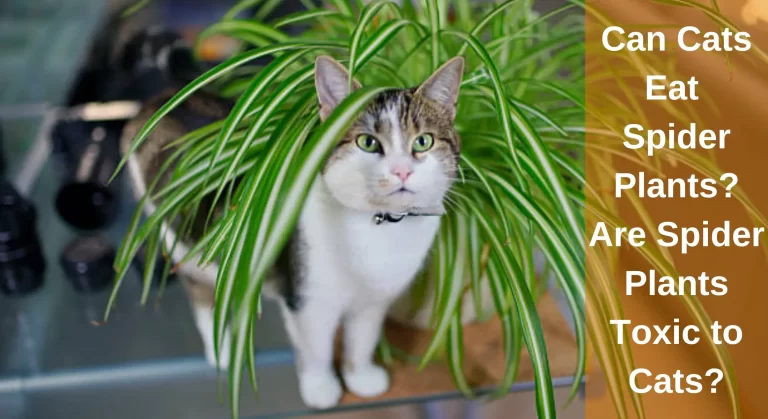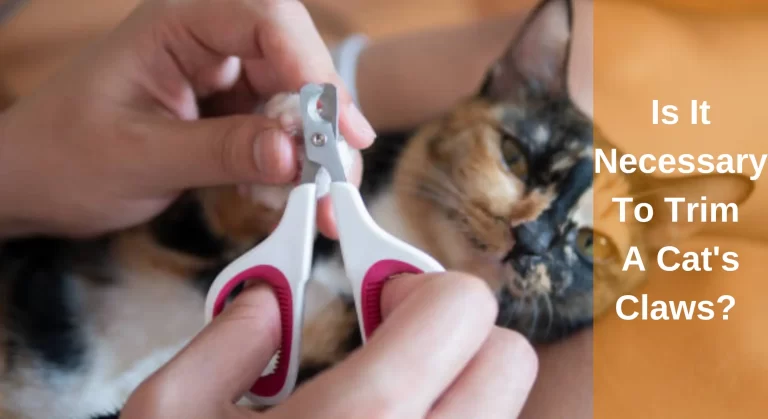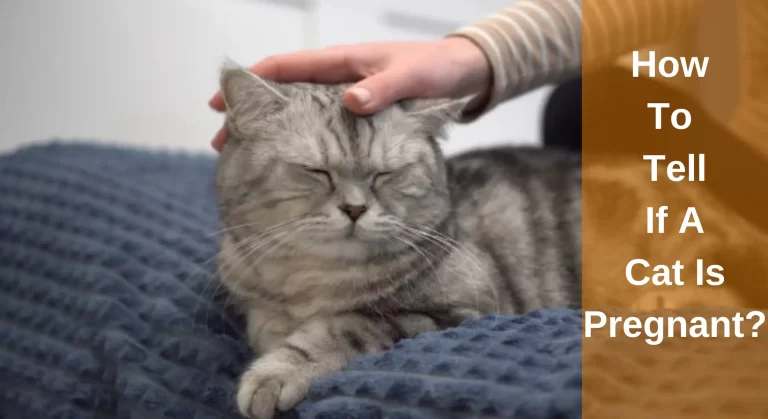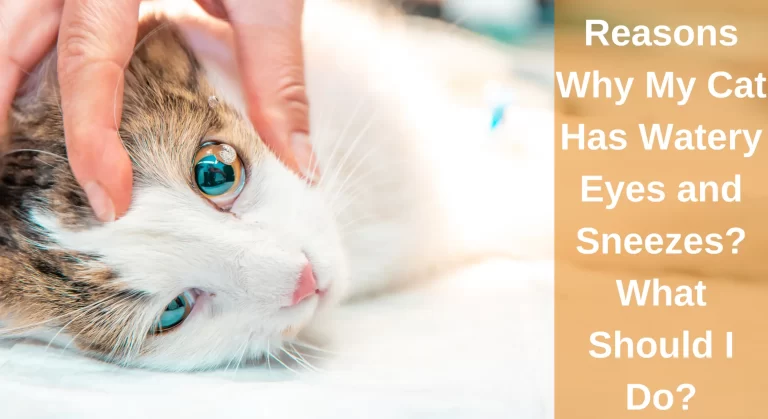Why Does My Cat’s Poop Smell So Bad? Causes and Remedies
No doubt the stool has a foul odour. However, it might have a strong nasty odour at times. Cat faeces may stink much like human faeces for the same reasons. However, it occasionally makes you wonder, “Why does my cat’s poop smell so bad?” We’ve got answers.
Just like human excrement, cat poop may develop a terrible odour. It’s a sign that the cat is not OK or uncomfortable. It turns out that many different factors can make cat excrement smell terrible. This can be the result of something they ate, or it might even be a sign of a digestive disease. It can be caused by bacteria, dietary factors, parasites, and health conditions that are severe
In this post, I discuss the top 10 reasons why cat poop stinks and offer advice on how to stop it from happening in the first place.
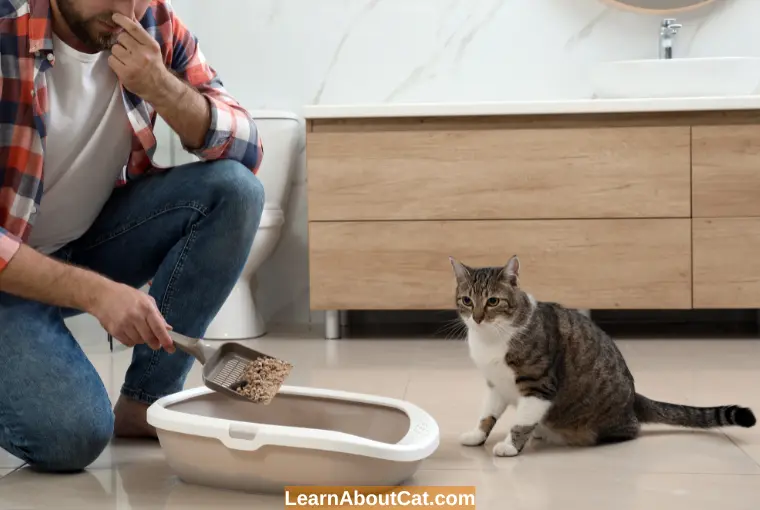
10 Reasons Why Your Cat’s Poop Smell So Stinky
There may be something wrong with your cat if there is bad-smelling poop, so it is important that you find out what the problem is. Here are some reasons why your cat’s poop has such a foul odour?
1. Changing Diet Suddenly
If you decide to modify your cat’s diet, don’t make the change too quickly since this might result in stinky faeces. Some cats may handle a quick switch, but the majority will experience digestive issues such as vomiting and stinky, frequently loose faeces.
When a change in diet causes your cat’s digestive problems, they usually go away on their own when your cat’s system adjusts to the new diet.
If you want to avoid stinky faeces as a result of a diet change, gradually introduce new foods to your cat. Depending on your cat’s pickiness, allow at least a week for a food transition, gradually increasing the amount of new food each day.
2. Bacterial Infection
Cats are carnivores by nature. To feed, they prey on other tiny animals. Their instinctive need for prey might lead them to eat things that aren’t good for them. It may carry germs if he or she lives outside the home.
The bacteria can cause digestive discomfort, inflammation, or sudden stinking odours in faeces, as well as diarrhoea if they consume meat contaminated with salmonella or E-coli.
Make sure you do not feed your cat raw food and that they remain indoors so that they can’t hunt and feed on prey such as rodents. Also, make sure that all routine veterinary care is provided to prevent problems from developing.
3. Problems with Digestion
Mal-digestion and mal-absorption are the scientific terminologies for these digestive problems. Specific dietary sensitivities and intolerances can also affect cats.
Bloating, gas and stinking excrement are all symptoms of digestive problems. So, in all of these circumstances, the cat’s poop smell will be bad or unbearable.
Your vet will need to do tests to see if your cat has mal-digestion, mal-absorption, allergies, or any other digestive issues, and they will tell you how to treat each one individually.
4. Food Allergies
It is important to understand that not all cats have the same stomach, and not every food is right for every cat. Food intolerances can cause diarrhoea, constipation, and stinky stools in cats.
Cats are generally intolerant of lactose, as well as other things, including certain types of proteins. If you have a cat that has an allergy or intolerance to something more unusual, such as certain types of proteins, you will want to speak to your vet about it.
An elimination trial or food trial is usually performed under the guidance of a veterinarian to diagnose food allergies in cats. You need to give your cat a special allergy diet for at least 8 weeks to accomplish these goals since certain foods must either be avoided or a special allergy diet must be consumed.
5. Hormonal Changes And Medications
Certain pain relievers and those that affect hormones might disrupt your cat’s natural chemical equilibrium. Your cat may suddenly produce foul-smelling excrement, depending on how long the chemical alterations have been there.
Consult your veterinarian to rule out the likelihood that drugs are the source of foul-smelling excrement. Vitamins and minerals are included in cats’ diet, so ask your vet if you want to add some extra supplements.
6. Infections of the Anal Glands
Cats, dogs and other mammals have anal glands. It’s common for them to drain through gland ducts. They do, however, occasionally clog and require human draining.
If the glands get inflamed, your cat may generate a runny discharge that stinks awful and clogs the litter box.
If you detect a bad odour that isn’t limited to the litter box, have your veterinarian examine your cat’s anal glands. Your cat’s anal glands may need to be manually expressed or emptied, or medicine may be required to clear up an infection.
7. Parasites
A parasite infection in your cat’s stomach can cause severe diarrhoea and foul-smelling faeces, necessitating a trip to the veterinarian.
Coccidian and Trichomonas parasites are two parasites that can cause major problems in animals, including stinky cats.
Antibiotics and other veterinarian treatments, on the other hand, can be used to cure the parasites’ effects on your cat or cats.
8. Not Picking up after themselves or Pooping Outside the Litter box.
Even though your cat’s faeces aren’t much stinkier than normal, they will begin to stink if they don’t cover it up in the litter tray. This might indicate that the litter is harming your cat’s paws or that they dislike the texture or scent of the litter.
If there is a high-edge litter box, the cat may be unable to poop inside it, or sometimes the tray may be too tiny to discharge.
Try using a new kind of litter or providing your cat with a tray that has lowered edges or is considerably larger. To find out whether your cat is in any pain, consult your veterinarian.
Check Out: Why My Cat Suddenly Pooping Outside Of The Litter Box?
9. Bleeding in the Intestines
If your cat has intestinal bleeding, you’ll notice a bloody discharge or stool with a strong, metallic odour.
Intestinal bleeding can indicate a variety of health problems, ranging from a digestive problem to an accident. If you observe blood in your cat’s faeces, please seek veterinarian help.
10. Foods High in Protein
Cats are inherently carnivorous. As a result, their cuisine is frequently high in proteins, particularly animal proteins sourced from the outdoors.
As a result of the high protein level in your cat’s food, it defecates unpleasant, foul-smelling faeces.
Although there isn’t much you can do about the odour in your cat’s droppings, a change in food can help.
11. Type of Litter
Even after you’ve cleaned the tray, natural cat litter like paper, odourless clay, and wood pellets might retain the stench of cat excrement.
Although your cat’s excrement may not smell much worse than usual, the lingering odour might quickly become unpleasant. Use a scented or odour-controlling cat litter, such as baking soda.
If you continue to use the unscented litter, cleaning them out as much as possible and changing the litter once or twice a week will assist.
12. Stress
Having a stressful environment can upset a cat’s stomach because his hormones change. When a cat experiences chronic stress such as being picked on by another cat or a one-time event like moving to a new house, stress can affect its gut health.
Also Read: The Ultimate Guide to How to Get Rid of Cat Pee Smell
How to Remedy Your Cat’s Poop from Smelling Really Bad?
Consult your veterinarian first if you are experiencing this problem. The smell of cats’ faeces can be unbearable for anyone. It is even worse when the cat’s already unpleasant smell becomes more unbearable.
Due to the fact that infections, inflammatory diseases, gastrointestinal problems, and cancer may cause your cat distress and stinking faeces, it becomes imperative to treat all underlying conditions as well.
The following steps can be taken to resolve the problems:
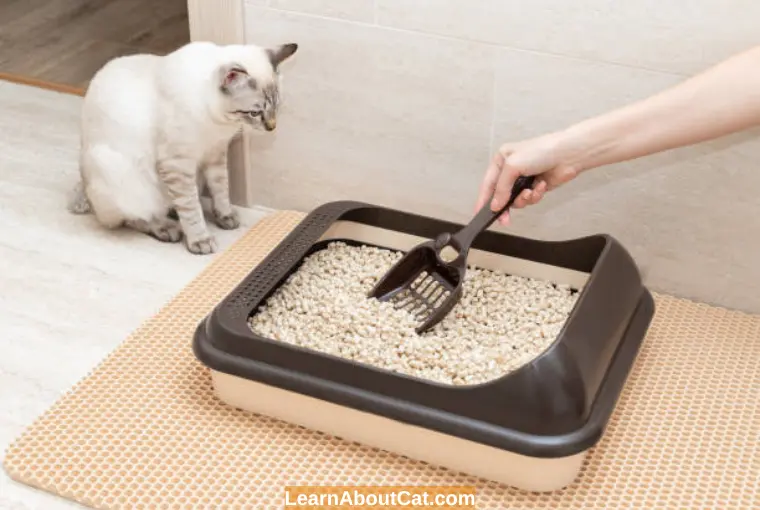
1. Changing The Diet
If your cat is allergic to certain foods, a veterinarian can prescribe a new diet and feeding schedule for your pet’s health. If you are having trouble coming up with a proper diet and feeding routine for your cats, consider consulting a veterinarian.
Cats’ health can be improved by adding digestive supplements to their diet, which help reduce bacteria in the body.
The best diet for your cat may be a high-fibre diet. These diets contain multiple types of fibre and are highly digestible, meaning they are easy to digest.
However, you might want to consider a novel protein or hypoallergenic diet for your cat. These diets aim to provide high-quality nutrition while avoiding food allergies.
2. Probiotics
Taking probiotics for your cat can help balance your pet’s gut and aid in improved digestion if used properly. Probiotics contain bacteria that can survive and thrive in the acidic stomach of cats. Make sure you consult your veterinarian before giving your cat probiotics.
3. Flea Preventative
Flea prevention is an effective way to reduce the risk of your cat acquiring tapeworms. Keep your cat indoors at all times. It is important to deworm any new cat you adopt – especially a kitten.
Keep any newly adopted cat separated from your resident cats for at least two weeks to ensure they do not spread parasites or diseases.
Regularly worm cats with broad spectrum wormers, most commonly every 3 months, however, some may require more frequent worming
4. Medications
The medication your cat needs may depend on whether she is suffering from a short-term or a long-term illness. A medication like metronidazole may be prescribed to cats with diarrhoea. Before giving anything to your cat always consult with your vet.
5. Reduce Stress
Minimize the stress your cat feels in your home by providing him with a warm environment. For example, if he is aggressive towards others and you have more than one cat, you should separate them at certain times during the day.
Enhance your cat’s enrichment by providing new toys, puzzle feeders, climbing structures, and scratching objects. Make sure to use cat pheromones in areas of the house that are stressful.
Also check Out: Why My Cat Not Pooping But Acting Normal?
How to Prevent Your House from Smelling of Cat Poop?
Of course, you should always contact your veterinarian first. It’s likely that your cat’s digestive system isn’t functioning properly if you’re dealing with stinking cat excrement. Any underlying issue that is treated should result in a minor improvement in how strongly scented your cat’s excrement is.
After that, be careful to clean the litter box regularly. Smelly cat excrement will be considerably less of a problem if you scoop the litter box at least once a day and clean it once a week. However, here are some other home remedies to try if you’re still having trouble after this.

1. Use Air fresheners
If you can’t get rid of the offensive cat excrement, the next best solution is to mask it with something enticing. Instead of using scented candle diffusers, I prefer to utilise air fresheners.
This is because the greatest solutions truly capture and eradicate scents instead of merely covering them up with a synthetic aroma. They are now far more efficient in getting rid of offensive faeces odours.
2. Modify or Improve the Litter box
Some cat litters are far better than others at capturing and getting rid of scents. As a result, switching to a different and more absorbent litter type can be helpful. While it may be tempting to use scented kitty litter to mask the odour, I’d advise against it. These synthetic scents may discourage cats from utilising their litter boxes.
The smell of cat excrement may be greatly reduced by switching your cat’s litter box. Cat litter boxes made of stainless steel work very well in this situation. Stainless steel litter boxes don’t retain smells as plastic trays do. They may be used for years because they won’t begin to smell with time.
3. Grooming
Ensure that your cat remains odour-free by washing it with cat shampoo and combing its hair to remove loose ones.
4. Vacuum Your House
You should vacuum your draperies, area rugs, couches carpets, and chairs as often as possible, including other areas where your cat spends time. By doing so, you’ll help eliminate loose hairs and dander from your cat’s body, ensuring that it smells fresh and not stinky.
If you want to keep your house from smelling like cats’ faeces, consider furnace filters, air purifiers, blankets and beds for cats.
5. Clean the Air
Finally, I advise cat owners to look at air filters. These devices purify the air in your house, eliminating allergies, big airborne particles, and offensive odours. For the best odour-eliminating capabilities, look for air purifiers featuring real HEPA filters in conjunction with a carbon filter.
Frequently Asked Questions
What does healthy cat poop smell like?
Healthy cat poo should have a mild smell and should not stink up your entire house for some time. After a few minutes, the wafting odour should dissipate.
How can I tell if my cat’s poop is healthy?
Healthy cat poop looks like this:
1. They should have deep brown poop
2. Preferably feeling neither too hard nor too soft or mushy
3. Not smelling too foul, although some odour is normal.
What is abnormal cat poop?
The presence of small, hard balls of poop can signify constipation and is considered abnormal and unhealthy. There may be a number of health concerns associated with this behaviour, including neurological or metabolic conditions or obstructions in the intestines.
What does abnormal cat poop look like?
When inspecting your cat’s poop, you should look for a few abnormalities that could indicate that they’re sick. The presence of water in their stool or the presence of red, orange, black, yellow, or green hues are indicators that something is wrong.
What colour poop is bad for cats?
The presence of red cat poop accompanied by diarrhoea or vomiting requires immediate medical attention. A poop that is extremely dark or black may indicate bleeding in the upper gastrointestinal tract in cats.
Wrap Up!
Why does the excrement from my cat smell so bad? We now know that it typically suggests a questionable gastrointestinal issue in your cat. Take them to the veterinarian for a checkup so that if anything is amiss, they can recover quickly. After recovering, they ought to be free of their foul cat poop.
Maintaining proper litter box hygiene may further prevent your cat’s faeces from making your entire home smell bad. Experiment with new litters, air fresheners, and air purifiers to give your house an extra dose of freshness.
Related Posts:
- Is It Normal For Cats Breath To Smell Like Fish?
- Litter Deodorizer vs Baking Soda: Which is Best for My Cat And Me
- Can Cat Urine Cause Headaches?
- My Cat Is Eating And Drinking But Not Peeing Why?
- The Ultimate Guide to How to Get Cat Pee Out of a Couch?
- Why Is My Cat Peeing on the Bed or Couch?
- Why Is My Cat Keeps Pooping On The Carpet or Floor?
- Why My Cat Keeps Peeing In The Same Spot
- Why Cat Peeing Over Edge of Litter Box?
Who is Isabella?
My name is Isabella, and I am a dedicated and knowledgeable cat enthusiast. With years of experience caring for cats and a deep love for felines, I made a mission to help other cat lovers navigate the challenges of cat ownership.


